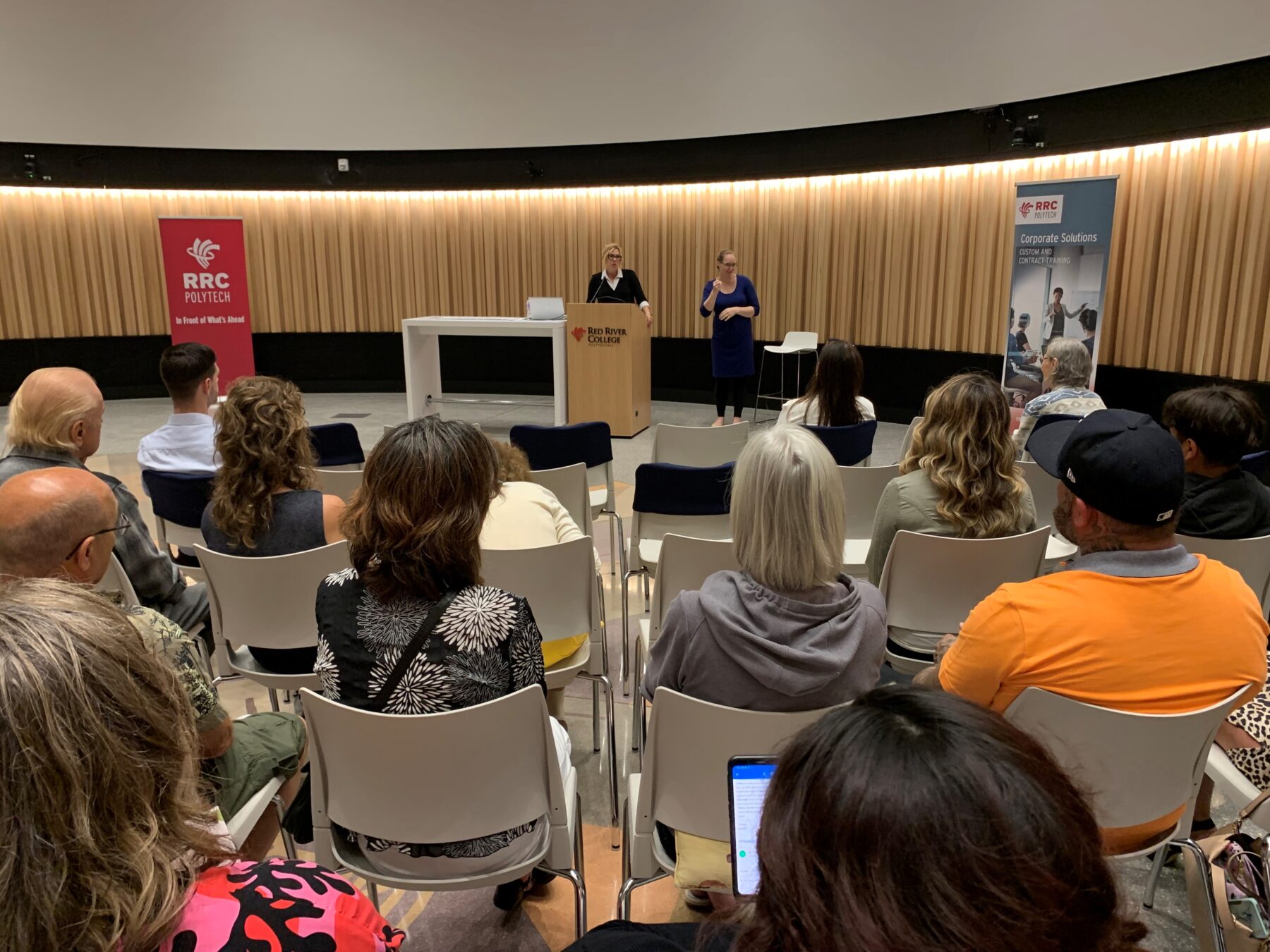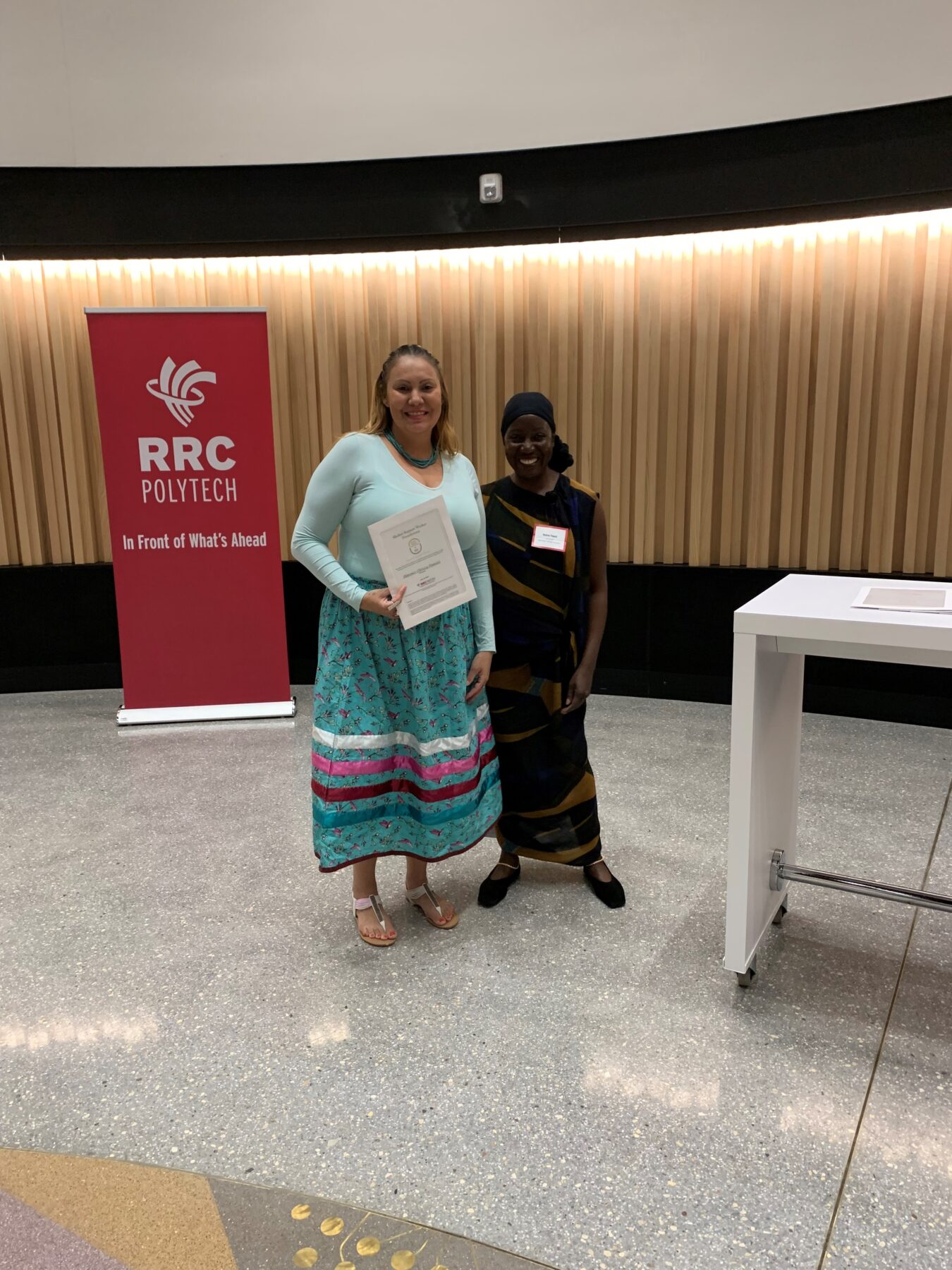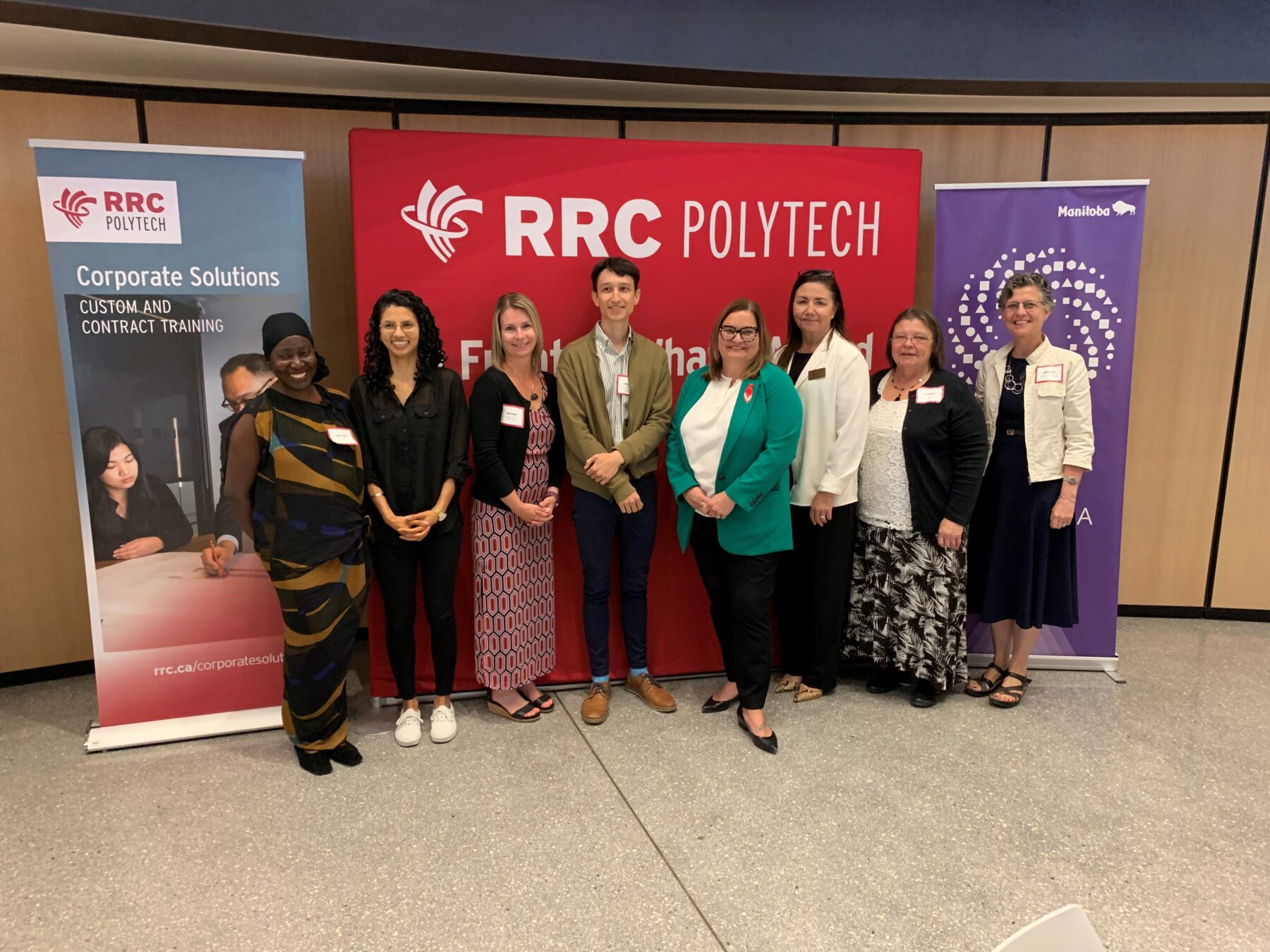RRC Polytech delivers exclusive training to support workers in homeless and family violence shelters across Manitoba
Winnipeg, Manitoba on Treaty No. 1 Territory and the Homeland of the Red River Métis Nation – Today in the Roundhouse Auditorium at Manitou a bi Bii daziigae, Red River College Polytechnic (RRC Polytech) celebrated the first cohort of students to successfully complete its Shelter Support Worker Micro-credential program designed with industry partners to address skills gaps, meet community needs, and improve staffing levels and delivery service in homeless and family violence shelters across the province.
The Shelter Support Worker Micro-credential program is the first of its kind in Manitoba, and the result of a collaborative effort between the Manitoba Association of Women’s Shelters (MAWS) and RRC Polytech and is supported by Gender Equity Manitoba. It aims to provide essential skills and knowledge for individuals involved in or aspiring to work in homeless and family violence shelters.
“The successful class we are celebrating today will have an immediate impact providing frontline services and support to Manitobans in need of refuge,” says Dr. Christine Watson, Vice President Academic, RRC Polytech. “Their accomplishment highlights the power of partnership and reinforces RRC Polytech’s strength of adapting our learning model quickly to respond to the evolving demands of our community by delivering crucial training through micro-credentials.”
Courses in the virtually delivered program include basic terminology and concepts, fundamental skills with specialization in homeless shelter support or women’s shelter support, a capstone project and a 20-hour practicum for learners to gain real world experience. Trained students from the following communities are prepared to enter or re-enter the workforce with a deeper understanding of the sector and the ability to provide trauma-informed care:

- Winnipeg
- Blumenort
- Beausejour
- Brandon
- West Pine Ridge
- Thompson
- Nelson House
- Stanley
- Manigotogan
“Going from needing a shelter at one point in my life to working at one is a bit surreal for me, but my lived experience has made me passionate about helping others and now that I have the skills to make a difference – I can be a positive force,” says student Steven Hunter, who was hired at the end of his practicum. “Based on my personal journey I feel the program provides valuable insight and understanding into the diverse cultures and struggles of people in need.”
Brittany Young is a women’s counsellor/coordinator at Mary’s House in Brandon – offering residential second stage safe housing and programs that focus on domestic violence providing a safe and trauma-informed environment for women and their children to heal. As a single mother of three, Brittany says the fully subsidized tuition and flexibility of online learning allowed her to excel and she now feels more confident because of her specialized training that includes intake process and assessment, crisis management, case planning, incident reporting, trauma-informed care, cultural differences and the impact of colonialism.
“I feel like I have a security blanket I can come back to time and time again to go over how to properly and effectively handle the complex situations you encounter in a shelter setting,” she says. “This course not only shaped me to become a better employee but it has really helped me become a better person over all.”

Just over a year ago, the Province of Manitoba committed $450,000 through the Canada-Manitoba Workforce Development Agreement to fund the creation of the Shelter Support Worker Micro-credential program in an effort to address the sector’s recruitment and retention challenges that have negatively impacted daily shelter operations and client service delivery.
“Manitoba Family Violence (FV) shelters have struggled for years to attract and retain qualified long-term applicants because of a historical lack of consistent and quality trauma-informed training designed specifically for the FV sector. These staffing challenges were compounded by the pandemic, affecting the life-saving frontline work of caring for clients who are increasingly presenting with complex needs,” says Deena Brock, Provincial Coordinator, Manitoba Association of Women’s Shelters. “This micro-credential pilot program allows the family violence and homeless sectors to build capacity, reduce barriers to care, and better support those affected by gender-based violence and housing instability.”
Partners, administrators, instructors and sector advocates including the Honorable Rochelle Squires, Minister of Families attended to congratulate the class and to witness them receiving their micro-credential badges to the delight of proud family members, friends and supporters.





